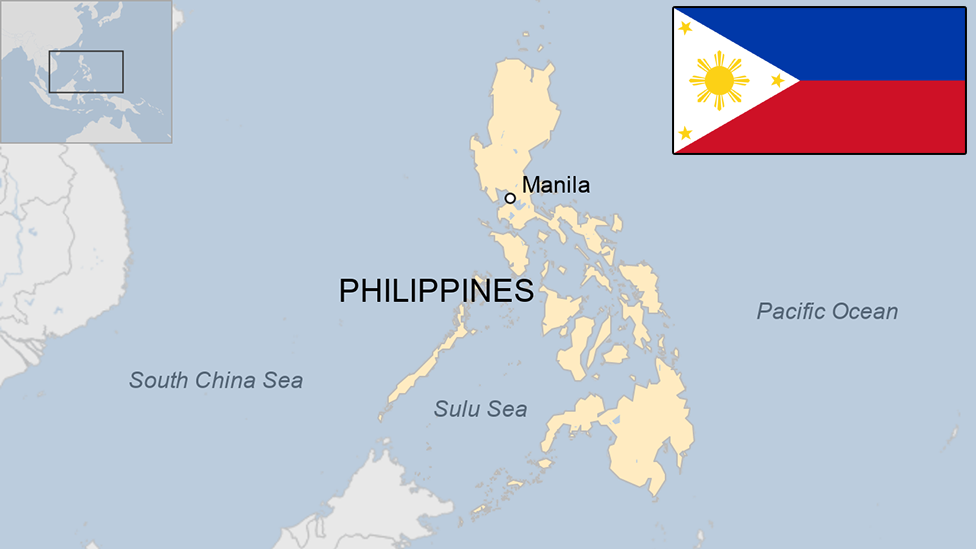Philippines election: Maverick Rodrigo Duterte wins presidency
- Published
Rodrigo Duterte has had tough words for drug-pushers and the Pope alike
Maverick anti-crime candidate Rodrigo "Digong" Duterte has won the Philippine presidential elections, following the withdrawal of his opponents.
Although the official result has not yet been declared, main rival Mar Roxas admitted defeat after polls gave Mr Duterte an unassailable lead.
Mr Duterte said he accepted the mandate with "extreme humility".
The 71-year-old stirred controversy during campaigning with his incendiary comments.
He has credited his success to his tough stance on law and order.
His record as the crime-crushing mayor of the southern town of Davao, once notorious for its lawlessness, earned him the moniker The Punisher and resonated with voters.
The Philippines elects its first transgender politician
Populism, celebrity and ugly realities in the Philippines
Who were the candidates in the Philippines' elections?
Other driving issues of the election campaign were pervasive corruption, as well as the poverty and inequality experienced by many Filipinos despite economic growth under outgoing President Benigno "Noynoy" Aquino.

What next for Duterte: Analysis by Jonathan Head, BBC News, Manila
Rodrigo Duterte, a man dubbed by his rivals as an executioner who would bring terror to the Philippines, has won the presidency by a clear margin, polling nearly twice as many votes as his nearest rivals.
But what is less clear is what he will do with the job. His blunt promise to sweep away criminals and corrupt officials won him the backing of millions of Filipinos weary of ineffective governments.
But he has so far offered few policy details. A spokesman has already pledged a radical overhaul of the political system. Human rights groups have warned he may repeat what happened in the southern city of Davao, where as mayor he is accused of allowing death squads to murder hundreds of alleged criminals.
Mr Duterte has a formidable task in a country still hampered by poverty and poor infrastructure - just meeting the lofty expectations he raised during his campaign will be hard enough.

Election officials have said there was a record turnout at polling stations, with more than 81% of the 54 million registered voters casting a ballot. Senators and about 18,000 local officials including mayors are also being elected.
The PPCRV (Parish Pastoral Council for Responsible Voting), external poll monitor said that with 90% of the presidential ballots counted, Mr Duterte had more than 14.8m votes - about 39%. The PPCRV is accredited by the election commission to monitor counting but its reporting does not represent an official tally.
Mr Roxas, a former interior minister and Mr Duterte's closest rival, had 8.6 million votes.
Rodrigo Duterte has a persuasive story to tell, Jonathan Head reports
As the extent of his lead became clear, Mr Duterte told AFP news agency: "It's with humility, extreme humility, that I accept this, the mandate of the people."
Mr Roxas accepted his rival's win. "There are many tears in the room. Let me tell you this is not a time for tears. For our country, we have had a peaceful, successful transfer of power."
Another key rival, Senator Grace Poe, was the first to concede defeat, promising to "co-operate with the healing process" after a turbulent campaign.
In the election to be vice-president, Leni Robredo, a social activist, is currently slightly ahead of Ferdinand "Bongbong" Marcos, the son of a former dictator Ferdinand Marcos.

The appeal of Duterte: Analysis by Karishma Vaswani, Asia business correspondent
The statistics are stark, and bleak. Experts say anywhere between 40% and 80% of Philippine legislators are connected to political dynasties with vested interests. A handful of the families control almost all of the country's wealth.
And perhaps the bleakest statistic of all: 25% of the population lives under the poverty line - a figure that has not changed much in two decades.
So it shouldn't come as a surprise then that Filipinos have chosen Mr Duterte's crime-busting, tough-talking, action-oriented ways over the current administration's candidate Manuel Roxas.

Mr Aquino is standing down as the constitution limits presidents to one six-year term. As Mr Duterte rose in opinion polls ahead of voting, Mr Aquino had tried to unite other candidates against him, warning his election could mean a return to dictatorship for the Philippines.
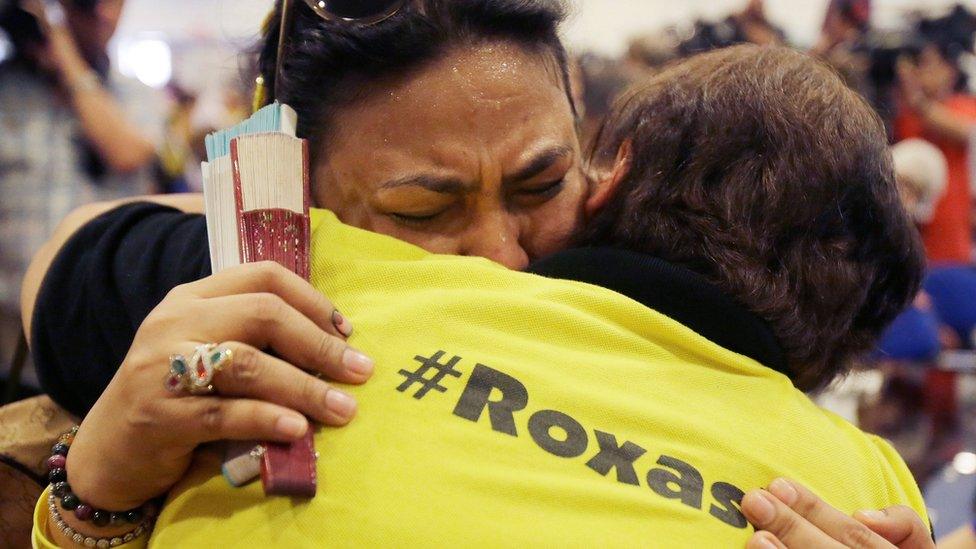
Supporters of Mar Roxas commiserated as he conceded defeat
Mr Duterte has made many controversial statements during his campaign, saying that he would massacre criminals and drug-users, joking about the rape of an Australian missionary and saying he would dissolve congress if it didn't agree with him.
He has also given forthright opinions on the Philippines' territorial dispute with China in the South China Sea, saying he would sail to disputed islands and plant the Philippine flag there.
The Philippines has taken one of its claims to a court of arbitration at the Hague. On Monday, he said he would seek multilateral talks over the issue, to include the US and Japan.

Duterte: From 'Punisher' to president
Born in 1945 into a political family but with a more modest background than many Philippine politicians.
Married twice but now single, he says he has several girlfriends.
A lawyer, he became vice-mayor of Davao in 1986 and mayor in 1988. He has also previously held a seat in congress.
Built a reputation fighting crime, militancy and corruption. He has promised to continue his tough stance as president, but has offered few specific policies.
Well known for incendiary comments, such as saying he would kill thousands of criminals without trial.

- Published31 May 2016
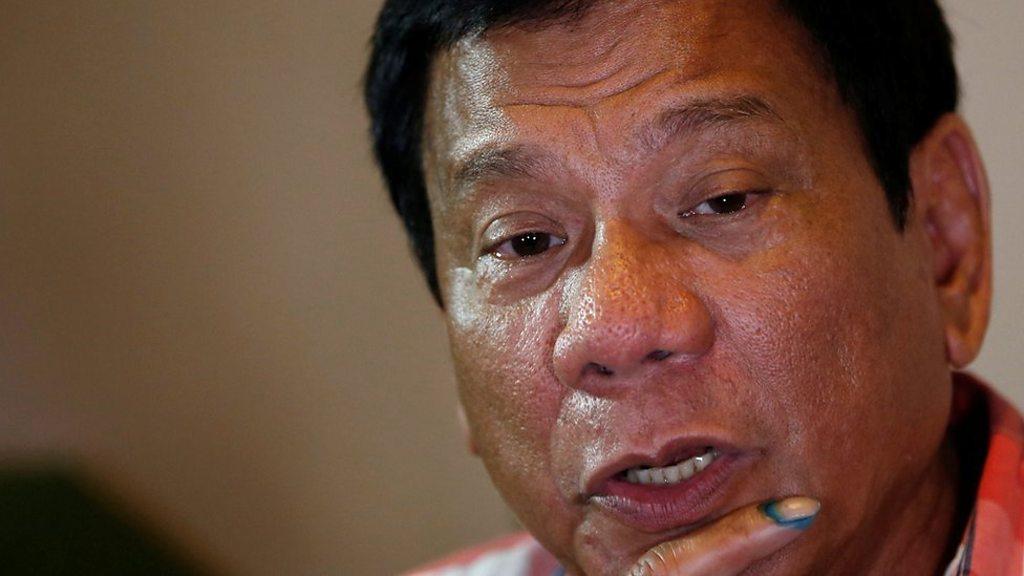
- Published10 May 2016
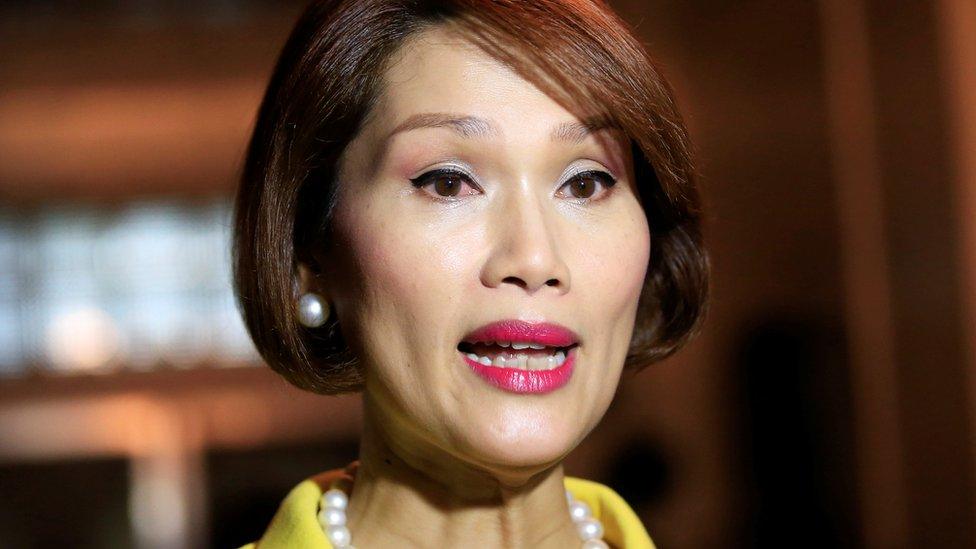
- Published8 May 2016
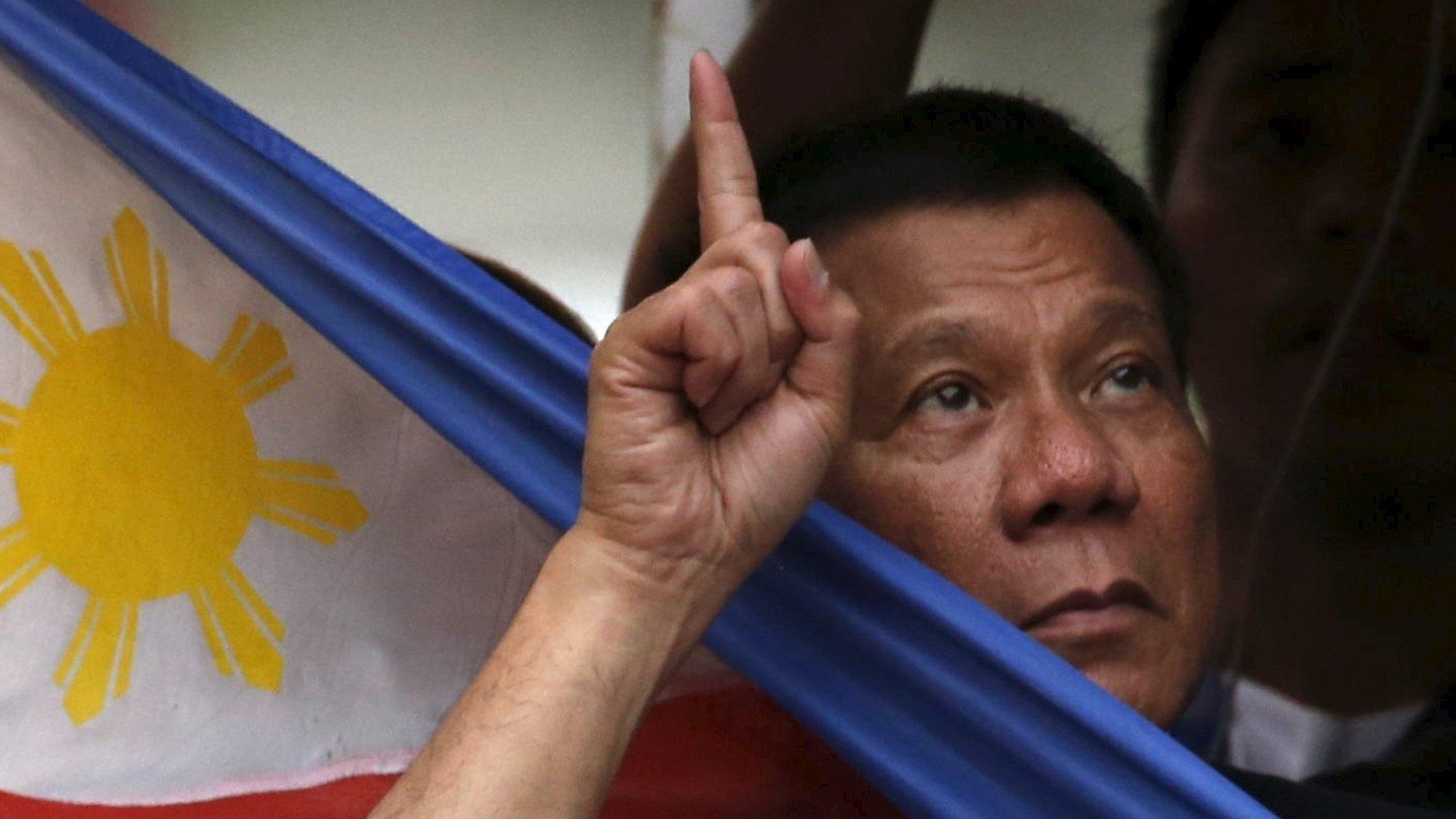
- Published29 April 2016
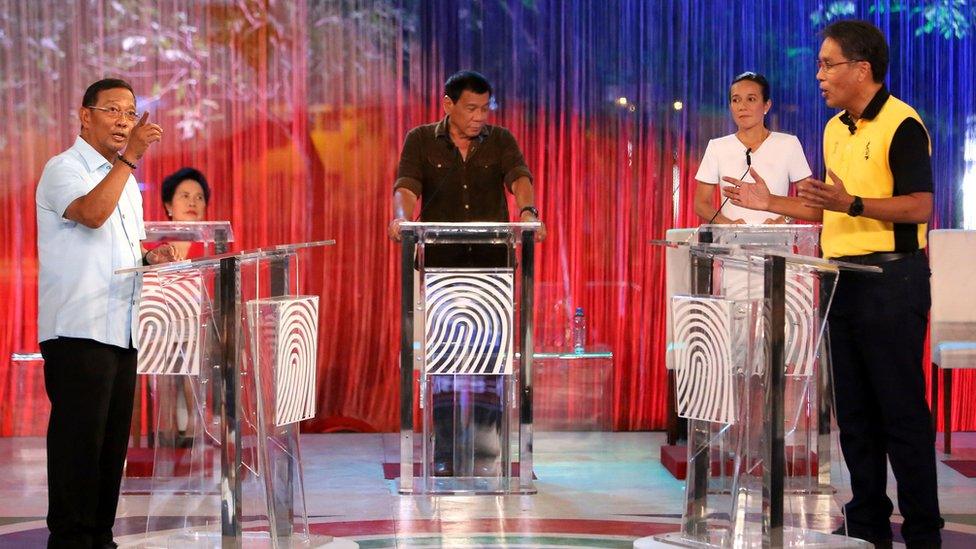
- Published7 July 2023

- Published6 April 2016
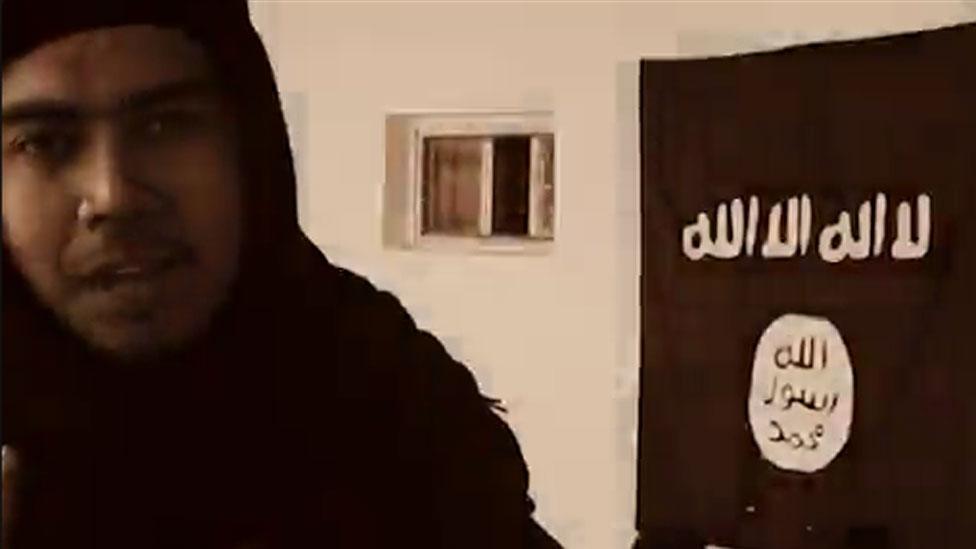
- Published5 July 2023
